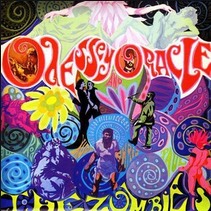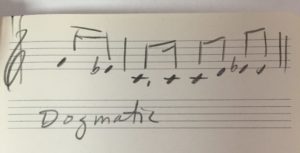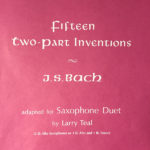Saxophone & Clarinet Lessons 503.888.5796
Play, Write, Listen, and Create Music at 1000 MPH

[Post edited and re-posted to reflect use of Pandora over Spotify.]
One night, before I went to sleep, I asked my dream self to help me write today’s music appreciation article. I woke up with this headline on the tip of my tongue and the skeleton of an actual article in my mind. I quickly wrote it all down. Courtesy of my subconscious, here are four ways we interact with music.
Play Write Listen and Create
Some of us PLAY music by singing or playing an instrument; others CREATE music by composing or arranging melodies and harmonies; still others WRITE music by recording rhythms, pulses and beats; and all of us LISTEN to music and consciously or not, analyze what we hear. And yes, some of us engage music in these four ways. So choose one or more of the activities below and have some fun today being musical.
1. LISTEN
Open up Spotify. Choose one of the main tabs: Overview, Charts, Genres & Moods, New Releases, and Discover. I enjoy seeing what is recommended for me based on previous ‘likes’; for example, the Discover Weekly playlist. [Since receiving feedback from friend and fellow composer/musician Alan Alexander III about the unfairness towards musician/composers exhibited by Spotify, I’ve re-written this part of the article to use Pandora. Thanks, Alan!]
 Open up the Pandora website. Below the list of your created stations is a a list of “Stations You Might Like”. Below that is this message: Want help finding something new? and a button to “Browse Genres”.
Open up the Pandora website. Below the list of your created stations is a a list of “Stations You Might Like”. Below that is this message: Want help finding something new? and a button to “Browse Genres”.
Choose a station you might like or browse the genres to discover some new music. Listen to three songs.
Record your thoughts and feelings as you listen. What do you notice about the following aspects:
- tempo?
- dynamics? (volume)
- tonality? (major, minor)
- rhythm?
- melody?
- title?
- when was it composed? (contemporary, 1950s, 1700s, etc)
- how does the song make you feel?
- what visuals come to your mind’s eye inspired by the music?
 How is each song alike? How are they different? Do you like the music? Did you skip any music? I skipped the third song in my list. The music was okay, but when the artist began singing I didn’t like his voice. Skip.
How is each song alike? How are they different? Do you like the music? Did you skip any music? I skipped the third song in my list. The music was okay, but when the artist began singing I didn’t like his voice. Skip.
I listened to Second Chances by Gregory Alan Isakov, Sweet Jane by The Cowboy Junkies, and This Will Be Our Year by The Zombies. My favorite is The Zombies’ tune. It conjured up a feeling of music from the seventies. Of course, the Odessey and Oracle album art might have had something to do with that too.
I enjoyed Second Chances and that surprised me a bit. It definitely has a country or folk feel to it. In my youth, I used to say there were only two types of music I didn’t like: Opera and Country. Well, hello new music! Spotify describes Isakov’s music as “dusty folk and moody Americana.”
Spotify provides more information about both the artist and the album. Reading Isakov’s biography, I learned he was born in Johannesburg, raised in Philadelphia (Yo, Adrian!), and relocated to Colorado.
Can’t leave out Sweet Jane! The hypnotic and repetitive bass line calls to mind a tune by Joan Armatrading. I can’t think of the title, but maybe if you listen to it, you can tell me.
2. WRITE
 In this activity you will be notating some rhythm that you hear in your daily life. It could be a bird call, a dog bark, the traffic, sounds of people in the mall or corner store. On a hike a couple of summers ago, I notated these woodpecker rhythms. As I listened to the rat-a-tat-tat, I wondered if there was a pattern or was the woodpecker simply stabbing erratically at bugs!
In this activity you will be notating some rhythm that you hear in your daily life. It could be a bird call, a dog bark, the traffic, sounds of people in the mall or corner store. On a hike a couple of summers ago, I notated these woodpecker rhythms. As I listened to the rat-a-tat-tat, I wondered if there was a pattern or was the woodpecker simply stabbing erratically at bugs!
For this exercise, focus solely on rhythm and don’t worry about pitch. Some tips to help: Repeat the rhythm by singing, clapping or tapping. Record it if possible.
Find the pulse and feel for the strong beats. Is the pulse simple (two or four beats per measure) or complex (three or five beats per measure)? Use a single line staff to notate or no line at all as I did above. Clap the rhythm you wrote. Does it match what you heard? Welcome to the world of percussion!
3. CREATE
 Do you recall the article I wrote about making music from your birth date and name? I heard about the resulting music from some of you. Music teacher Kelly Dugger used the math game with her middle school music appreciation class. Each student composed music for the date of their birth and Kelly played them on the marimba. Saxophone student Kate Richardson composed a pentatonic-based melody using the words “song for Nori.” For Kate, the game served as a starting point to create a short melodic motif.
Do you recall the article I wrote about making music from your birth date and name? I heard about the resulting music from some of you. Music teacher Kelly Dugger used the math game with her middle school music appreciation class. Each student composed music for the date of their birth and Kelly played them on the marimba. Saxophone student Kate Richardson composed a pentatonic-based melody using the words “song for Nori.” For Kate, the game served as a starting point to create a short melodic motif.
Here is a table for ‘decoding’ words into the notes of C harmonic minor scale, without the fourth tone of the scale.  Use the instructions in the Making Music article to give pitch to your name or use one of the many “word of the day” websites. Word Think. A.Word.A.Day. Dictionary. You’re a composer now.
Use the instructions in the Making Music article to give pitch to your name or use one of the many “word of the day” websites. Word Think. A.Word.A.Day. Dictionary. You’re a composer now.
I chose the word Dogmatic from WordThink. The word itself suggested the rhythm I applied to the specified pitches. It’s cool when the music sounds like the word.
4. PLAY
For this activity I urge you to use your voice, even if you don’t call yourself a singer.
Sit comfortably and close your eyes. Imagine a place that conjures a feeling of peace. In your mind’s eye, conjure all the details of the place. Use all your inner senses to bring life to your visualization. Listen. Touch. Smell. Take a couple of minutes to fully manifest a peaceful place.
Keep your eyes closed and begin to sing. When I did this a few days ago, I conjured up a spot on the Old Salmon River Trail. Sitting on a dry rock next to the cool burbling river, warm sun on my arms, small fish swimming and playing in the water, flickers calling out from the treetops.
I began to sing “la, la, la…” at first timidly. As I continued, my voice grew stronger. Surprisingly, I began singing in a minor mode. My voice didn’t hold the key steady and I changed key a few times and ended my vocal explorations in a major mode.
One thing I noticed was that my visualization became stronger as I sang. As if the music reinforced my mental imagery and sensations. Try it now. How long should you sing? As long as it feels good!
1000 MPH
Yeh, I’m still not sure what this headline means but I trust my dream self’s creativity and knowing. As always, I love to hear about your experiences with these activities. Or what you think the headline means. 😉 Share your stories in the comments area below.




I love the article, except the recommendation for Spotify. They don’t compensate composers fairly for use of our music.
Ooh, thanks for the heads up, Alan! I didn’t realize that. What about Pandora? better?
I suppose people could actually turn on their radio, if they still own one!
Subscription services like Pandora, Apple Music, Amazon support the artist / composer better. Spotify and You Tube are the worst offenders. The DOJ is investigation the whole mess to even the playing field. In the meantime, we should be aware of which Internet companies make huge profits at the composers expense.